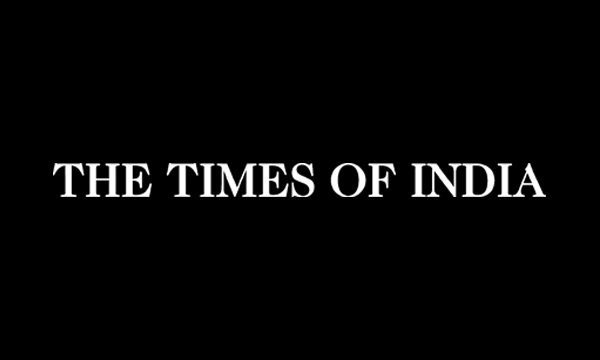WASHINGTON _ The new top diplomat from Venezuela strode to the microphones outside the White House and asked for the free world's help to "liberate" Venezuela from a Cuban colonist.
Donald Trump's team couldn't have scripted it better.
It was a short, but impassioned speech by opposition leader Carlos Vecchio. He thanked President Trump for his help fighting to restore democracy in Venezuela and asked for international backing in the call for new elections. And he took clear and deliberate aim at the Trump administration's new favorite adversary, Havana.
"This fight is not about ideology," Vecchio said. "This is a fight between democracy and dictatorship. This is a fight between a dictatorship which is totally controlled by the Cuban regime against the free world."
The moment reflects the success the White House has had reshaping Venezuela policy with an eye toward Cuba, or as some put it, the "Cubanization of Venezuela policy."
Trump is expected to ratchet up the pressure even more during his State of the Union address on Tuesday.
Senior administration officials say that Cuban leaders have propped up the embattled Caracas government and that President Nicolas Maduro would be out of power if it wasn't for the Cuban intelligence operatives who have enabled Maduro to control restless Venezuelans and block efforts to replace him.
"There really is going to be no long term resolution to the crisis in Venezuela without neutralizing the Cuban role there. That has to be on the table," said Jose Cardenas, who served in the National Security Council under George W. Bush and regularly speaks with Trump administration officials.
No matter how hard Trump attacks Cuba and Venezuela in his address to the joint session of Congress, Trump is likely to get rare bipartisan support from Cuban-American lawmakers such as Republican Sen. Marco Rubio of Florida, who has pushed Trump to take a stronger stance on Cuba, and Sen. Bob Menendez, the ranking Democrat on the Foreign Relations Committee who accused Cuban leader Miguel Diaz-Canel along with Russia's Vladimir Putin with keeping Maduro in power.
"As Cuba continues to export its communist ideology, and sends its coercive security forces throughout Latin America, we must continue to advocate for a hemispheric reality that serves the national interests of the United States and our regional allies," Rubio told McClatchy.
Trump promised during his presidential election campaign to take a harder line on Cuba than did then-President Barack Obama. While he took steps to reverse Obama-era policies of rapprochement toward Cuba, more significant change to Trump's approach came when John Bolton was installed as the National Security Adviser, followed by Mauricio Claver-Carone as head of the National Security Council's Western Hemisphere Affairs.
Even before he joined the Trump administration, Bolton advocated for stronger restrictions against Cuba. In 2002, as undersecretary of state, he accused Havana of trying to develop biological weapons. Claver-Carone was one of the most outspoken opponents of the Obama administration's rapprochement with Cuba.
Trump never sought a briefing on Cuba's intelligence role in Venezuela until after Bolton arrived, according to sources familiar with the discussions. In fact, he didn't ask much about Cuba until months into his first term and that was to discuss Obama's policy and how it could be reversed.
"Whatever is animating Trump on Venezuela, I don't think its Cuba," said Mark Feierstein, the National Security Council's senior director for Western Hemisphere affairs under Obama. "Trump has never demonstrated a concern about Cuba. As we know he tried to do business in Cuba. We know that he privately told Obama that he agreed with what Obama was doing on Cuba policy."
It's not that Cuba isn't seen as a malevolent force in Venezuela, Feierstein and others say. Cuban officials are training and embedded in intelligence and security services. Few doubt those ties, but critics question Havana's true influence on the South American country's 30 million Venezuelan citizens.
"Are the Cubans doing things to help, of course, but it's more on the margins than it is a kind of real threat that they are the propping up the regime," said a person familiar with the discussions.
Trump hinted at the new pressure campaign during his United Nations speech to world leaders in September, after Bolton's arrival, announcing new sanctions and criticizing the Maduro government and "its Cuban sponsors."
But, if there was ever any doubt after that, Bolton cleared it himself during a now infamous "Troika of Tryanny" speech in Miami targeting Cuba, Venezuela and Nicaragua, another authoritarian government, ahead of the 2018 congressional elections.
"These tyrants fancy themselves strongmen and revolutionaries, icons and luminaries," Bolton said in a policy speech at Miami Dade College's National Historic Landmark Freedom Tower. "In reality they are clownish, pitiful figures more akin to Larry, Curly and Moe. The 'Three Stooges' of socialism are true believers, but they worship a false God."
The Cuban embassy didn't respond to specific questions about ties with Venezuela, but referred McClatchy to the foreign ministry's twitter page that includes tweets supporting Venezuela and Maduro's sovereignty.
Benjamin Gedan, who was responsible for Venezuela policy on the National Security Council during the Obama administration, said the crisis in Venezuela offers the administration an opportunity to highlight Cuba's "nefarious impacts on the region," including Cuba's role monitoring and repressing dissent in Venezuela. He described the new team of having a Moby Dick-like obsession with Cuba.
"By cracking down on Venezuela, the White House bludgeons Cuba's top ally, and limits whatever assistance Venezuela is still providing Havana," Gedan said. "For key members of President Trump's national security team, Cuba is a foreign policy white whale."







